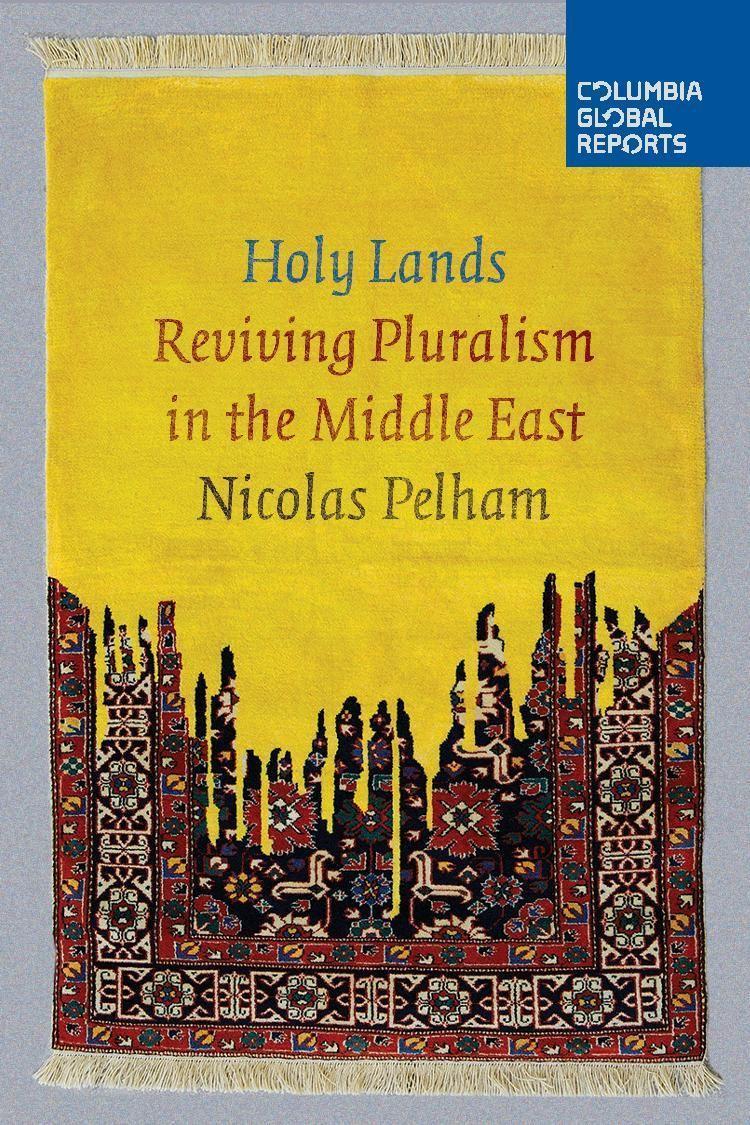Reviving pluralism in the Middle East
William Armstrong - william.armstrong@hdn.com.tr

Yazidi Kurds gather around a camp fire in a makeshift camp on the Greek-Macedonian border, near the Greek village of Idomeni, on March 31. Over 11,000 refugees and migrants are currently stranded as a result of the Balkan border blockade. AFP photo
‘Holy Lands: Reviving Pluralism in the Middle East’ by Nicolas Pelham (Columbia Global Reports, 183 pages, $14)In his State of the Union address in January, U.S. President Barack Obama said the current upheaval in the Middle East is rooted in “conflicts that date back millennia.” Amid a widening of the Sunni-Shia divide, the idea of “ancient hatreds” and timeless sectarian strife going back to the first generation of Islam has certainly risen in popularity.
 But the idea is a canard. For much of Islamic history, and for many centuries in the Middle East, sectarian conflict was an aberration. Recent events are an exception to the historical rule. For some, the current politicization of identity “proves” the inherent intolerance of the region in general and Islam in particular. But territories that are today seen as the least tolerant and stable places on the planet were once global exemplars of pluralism and religious harmony. The Islamic system that held sway in most places had a centuries-old record of pluralism that was unmatched by Christendom. There are complex reasons behind today’s hardening of ethnic and religious identity, but it is a modern phenomenon with modern-day causes.
But the idea is a canard. For much of Islamic history, and for many centuries in the Middle East, sectarian conflict was an aberration. Recent events are an exception to the historical rule. For some, the current politicization of identity “proves” the inherent intolerance of the region in general and Islam in particular. But territories that are today seen as the least tolerant and stable places on the planet were once global exemplars of pluralism and religious harmony. The Islamic system that held sway in most places had a centuries-old record of pluralism that was unmatched by Christendom. There are complex reasons behind today’s hardening of ethnic and religious identity, but it is a modern phenomenon with modern-day causes. “Holy Lands: Reviving Pluralism in the Middle East” by The Economist correspondent and author Nicolas Pelham combines on-the-ground reportage with historical rumination. Over six essays, Pelham explores the political effects of demographic shifts over the past century. Informed by past and present realities, he also muses on possible paths out of the current meltdown. His reportage is illuminating, but his history lessons are shaky and the solutions he suggests are delusional.
Pelham looks back to the age of Ottoman pluralism, describing how authorities in the Ottoman Empire devolved power to the “millet” or religious constituency. “Rather than establish an ethnic hierarchy” he writes, “Each millet was semi-autonomous, administering its own co-religionists, raising its own taxes, and applying and enforcing its own religious laws.” This arrangement was necessary: Administrative pluralism was probably the only way to rule over such sprawling territory and diverse populations. At most points in the empire’s 600-year history, Muslims were actually in a minority. If the Ottoman Empire had not embraced its non-Muslim majority, it would never have spread so far, so fast, or survived so long.
But Pelham’s account of Ottoman multiculturalism is very shallow. He has little knowledge of how anti-imperial national movements developed through the late Ottoman Empire, dominating ideas of modernization and progress amid imperial decay. At times he bizarrely holds up the religiously conservative Sultan Abdülhamid II as a paragon of Ottoman tolerance, which would be news to the Alevis and Armenians massacred by Abdülhamid’s gangs. Contrasting the intolerance of the modern Turkish Republic with its pluralistic Ottoman predecessor, he refers to the Wealth Tax imposed on minorities from 1942 to 1944 – but he fails to mention that a compulsory “jizya” tax was levied on all non-Muslim minorities during the romanticized Ottoman era.
The central sections of the book are its strongest. Pelham presents convincing snapshots of how intolerance has risen in recent decades, as many states attempt to impose various forms of religious and ethnic homogeneity. He traces this process in Israel/Palestine, Sunni-majority Arab states, and among Shia Muslims including Iran. Pelham makes clear that the current regional cataclysm comes after decades of rising ethno-religious identification, for which there are complex causes. The crumbling of the Arab Spring into bitter sectarian warfare is burning much of the region to ashes, and with it “the last multi-confessional vestiges of the Ottoman Empire.”
Pelham floats possible solutions to this morass. They are original if nothing else. Taking inspiration from the Ottoman past, he suggests “decoupling the link between state and territory” and restoring “trans-national millet rule.” “Local district councils would be entrusted with managing municipal affairs, while pan-regional millet leaderships would administer, regulate, and safeguard their own confessional groups,” he writes. “Given the right framework, sectarianism may yet be the sinew that pulls the region together – not the centrifugal force that wrests it apart.”
That sounds fine in theory, but things get alarming when he suggests modern-day Lebanon as a possible practical model. “Lebanon offers a foretaste of how such a system might work,” he writes, ignoring the fact that Lebanon doesn’t really work. The Lebanese themselves might be surprised to learn that their political arrangement is a model for anything other than dysfunction, stasis, and corruption. But Pelham is undaunted. “While neighboring Syria collapsed into sectarian bloodletting and drew in Lebanon’s own sects, Lebanon has largely ridden out the storm,” he says, ignoring the fact that the Syrian war has probably absorbed and tempered its neighbor’s sectarian energies. It’s also likely that traumatic memory of Lebanon’s own civil war from 1975 to 1990 still acts as a kind of national firewall against a similar breakdown. Lebanon’s resistance to the current meltdown is unlikely to be thanks to its unique confessional administrative arrangements; if anything, those arrangements may have exacerbated inter-communal tension.
Pelham blithely acknowledges that “liberals will fret that the formalization of a confessional system will erode individual liberties.” Indeed they will. And he does nothing to address those “frets.” In which “millet” does he suggest placing the millions – and ever rising number - of unbelievers in the Middle East? Should their rights as human beings be overridden by supposed collective rights as nominal Muslims/Christians/Jews?
Pelham’s ideas look like a bad parody of identity politics, which can sometimes serve a good purpose but which can sometimes debase people by limiting them to narrow collective ethno-religious boxes. He says recognizing the overwhelming religious nature of the Middle East is simply a matter of realism. But his suggestions risk making a bad situation worse.
*Follow the Turkey Book Talk podcast via iTunes here, Stitcher here, Podbean here, or Facebook here.










